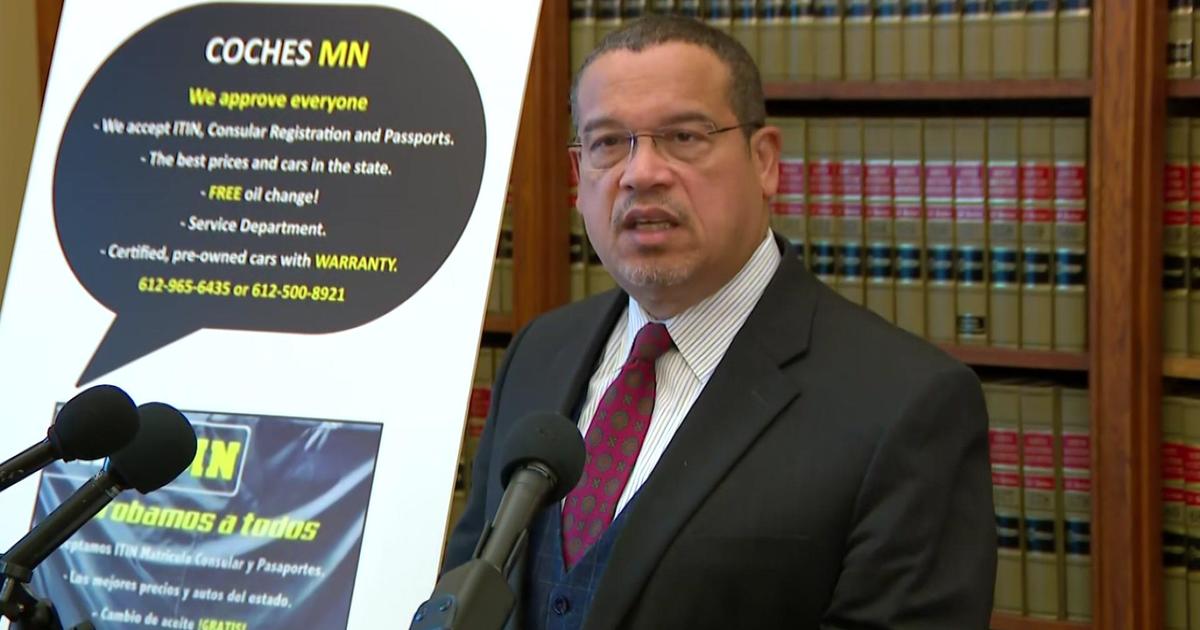$1.4 Billion Budget Surplus Expected Over Next 2 Years
ST. PAUL, Minn. (AP/WCCO) — Minnesota lawmakers will have a $1.4 billion budget surplus to spread around next year, state officials announced Friday.
According to the budget forecast, Minnesota is expected to close out this budget cycle in June with a $678-million-surplus.
But the revenue growth is expected to continue leaving lawmakers with more to work with for the two year budget plan.
It's an unexpected bit of good news for most lawmakers and Gov. Mark Dayton, who weren't expecting as much as they head into 2017 charged with setting a new, two-year budget.
Minnesota Management and Budget Commissioner Myron Frans noted it was the state's seventh consecutive budget forecast projecting a surplus, and he relished the lack of wild financial swings.
"Boring is good. Boring means that our budget remains balanced," Frans said.
The question now is how will they spend it?
Because Republicans will have control of the House and Senate in the New Year it's likely their initiatives will dominate on how to spend that money.
Republicans have advocated for infrastructure spending and relief for Minnesotans experiencing skyrocketing health care premiums. Meanwhile, Gov. Dayton has pushed for initiatives like investing more in childhood education.
Of course the governor has to sign off on any budget plan that is drawn up.
Gov. Dayton is urging financial restraint even with a $1.4 billion budget surplus.
Dayton says the extra cash is another reminder that the state is on firm financial footing after several decades of deficits.
The governor released a statement Friday.
"To put this report in context, six years ago, at the November forecast with which I took office, the projection was for a $6.2 billion deficit in the next biennium. We owed $2 billion to the schools, and there were numerous other shifts and gimmicks woven into the budget.
"Now, we have a projection of a $1.4 billion surplus for the next biennium, we owe nothing to the schools, $1.9 billion is parked in the budget reserve fund, and it's just a remarkable change from chronic deficits to a secure budget, fiscal integrity for the state, honest budgeting, and the like.
"What this forecast says to me is that we're in a time of continued economic insecurity, and these projections occurred before the election. And nobody knows what those impacts are going to be. We'll have a better idea at the forecast at the end of February.
"To me, it means that we need to be cautious and prudent, and recognize that our economic growth is constrained by the national economic growth—the forecast here is for continued growth, but to a lesser level than previously forecasted—and also, the ceiling in our labor force, which is really impacting businesses who want to expand, and there are just not the workers available to do so.
"So those are going to be our constraints under, really, the best of reasonable circumstances. This does not factor in the possibility of a recession, it does not factor in the possibility of some other serious economic dislocation. We obviously have both in our steel industry and in our agriculture industry. Those sectors of our economy in Minnesota, we need to do whatever we can, but frankly, the federal government is really going to be the impetus for the kind of recovery necessary in those two sectors. So, the things we can and will do within the state level, but we're also going to need some cooperative action from Washington."
House Speaker Kurt Daudt also responded.
"Last session, House Republicans urged fiscal restraint and successfully held the line on spending. This surplus makes clear those efforts paid off. Now's the time to focus on helping Minnesota families by providing middle-class tax relief, working to lower health care costs, and examining every dollar of our state budget to find efficiencies and make government more accountable."
The last two years of split-government control show even handling a hefty surplus isn't easy.
Dayton and Democratic allies who controlled the Senate squared off with House Republicans in 2015, when they had $1.9 billion in extra funds but still went to a special session to complete a budget. In 2017, Dayton is outnumbered as the GOP took back control of the Senate and maintained a House majority.
Much of the windfall comes from nearly $730 million the Legislature left unspent this year due to stalled tax and transportation bills. And projected savings on public health care programs add to that.
But officials from Minnesota Management and Budget warned that a sagging national economy could spell trouble for Minnesota down the road with lower tax collections.
Dayton has said one of his top priorities for his final two years in office is protecting the state against an economic downturn and the budget deficits Minnesota lawmakers have continually dealt with in the past two decades. He and top legislators were expected to lay out their plans for the excess money later Friday.
Minnesota lawmakers return to the Capitol Jan. 3, but their budget work won't begin in earnest until after budget officials give a final update on the state's financial standing in February.
A second budget forecast will be released in February.
That one will really decide how much legislators can spend in the next two year budget that they will negotiate for the upcoming session.
The 2017 legislative session kicks off Jan. 3.
(TM and © Copyright 2016 CBS Radio Inc. and its relevant subsidiaries. CBS RADIO and EYE Logo TM and Copyright 2016 CBS Broadcasting Inc. Used under license. All Rights Reserved.This material may not be published, broadcast, rewritten, or redistributed. The Associated Press contributed to this report.)



